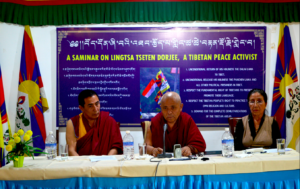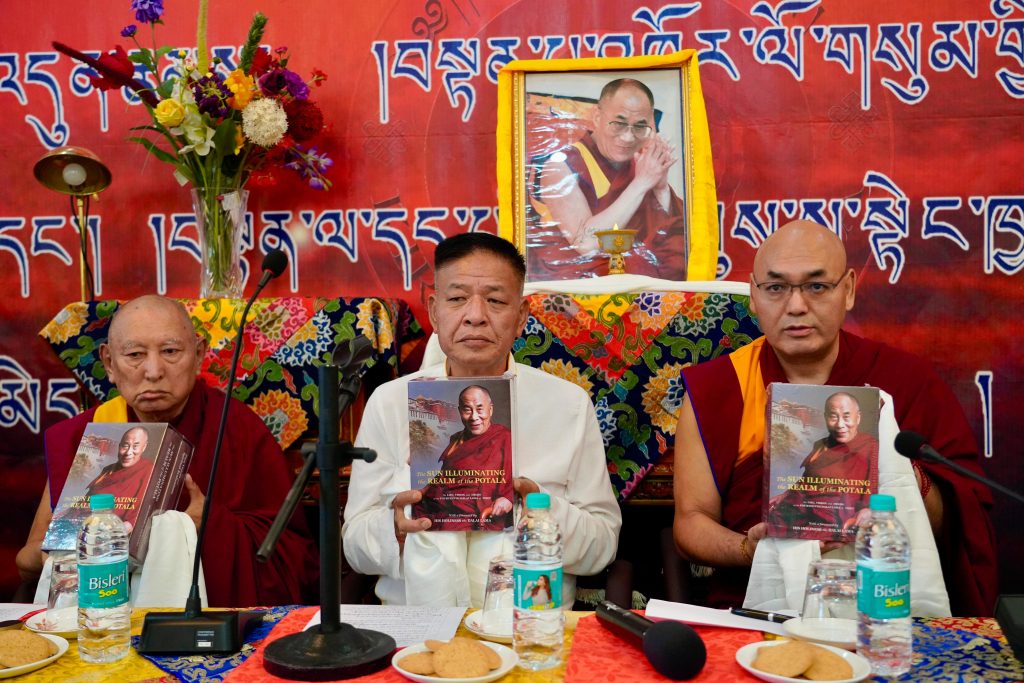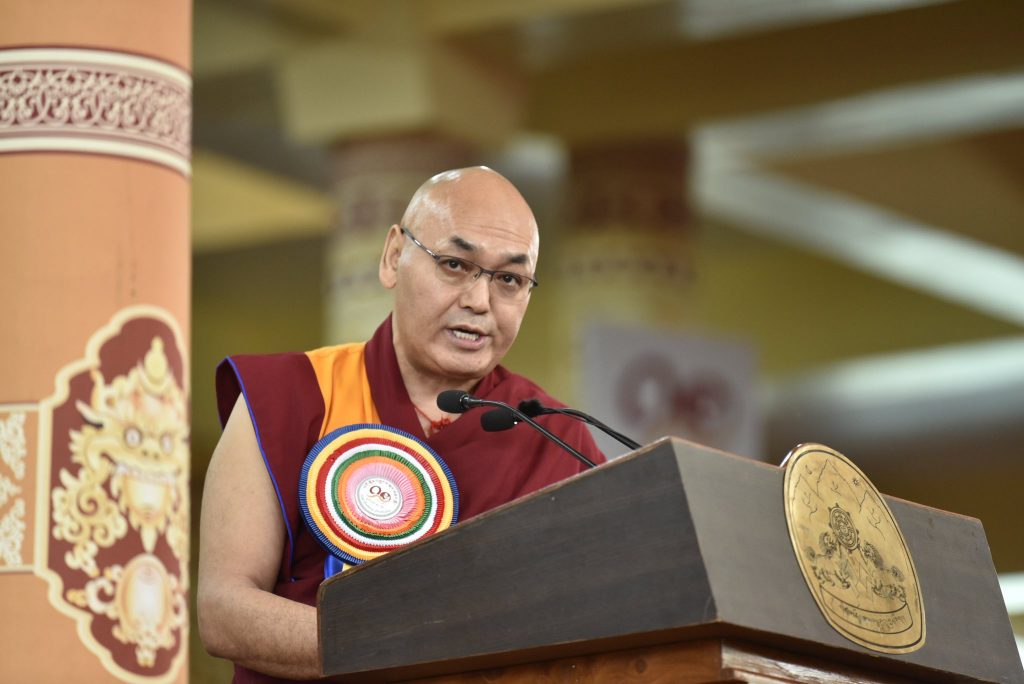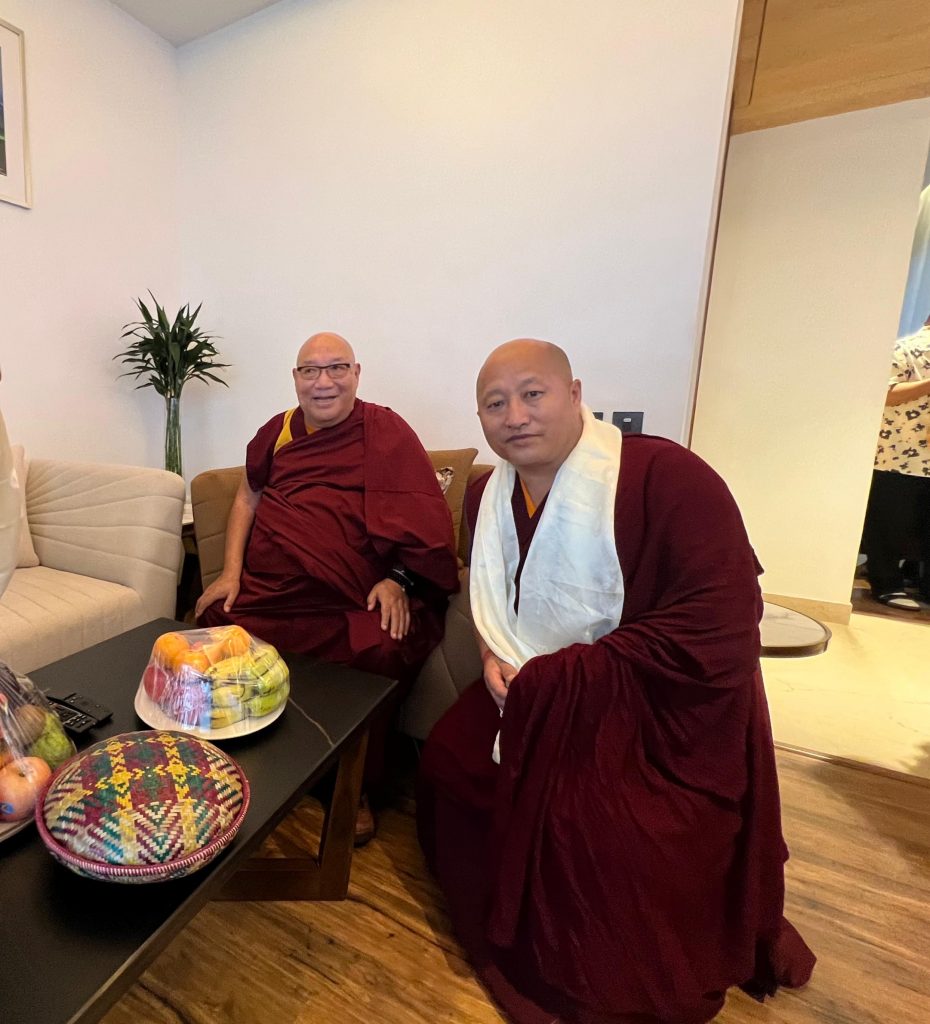Dharamsala : As per the invitation proffered by the Office of the Central executive Committee of Dhomay, Deputy Speaker of the 16th Tibetan Parliament-in-Exile Acharya Yeshi Phuntsok attended the seminar titled ‘A Seminar on Lingtsa Tsetan Dorjee, a Tibetan Peace Activist’ in the hall of Hotel Tibet at 2 pm on June 8, 2018.
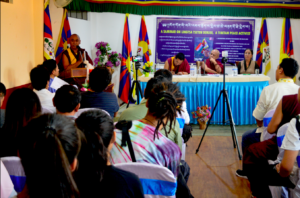
With the formal greeting and introduction of panelists by the convener of the committee, the seminar began with the President of the host committee Geshe Ngaba Gangri detailing the rationale behind the organization of this particular seminar and its objectives. He also stressed on the importance and significance of supporting Tibetan activist by every Tibetans, irrespective of the provinces.
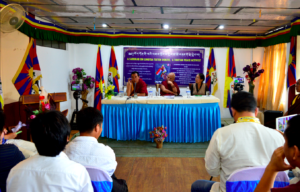
Thereafter, panelist Geshe Lobsang Choephel, President of International People’s Movement for Middle Way Approach, chaired the seminar, speaking on the allotted topic, ‘Whether Tibetan Peace Activist Lingtsa Tsetan Dorjee’s peaceful struggle was in compliance with Middle Way Approach and how his activism is viewed in exile community.’ He pointed out that not only were his peaceful struggle complimented the policy of Middle Way Approach but even his books and other works also followed the similar non-violent and peaceful pathways as advocated and practiced by Mahatma Gandhi. ‘Like Mahatma Gandhi, he also sacrificed his everything including the familial joys and happiness fo the bigger cause of Tibetan peace and its struggle movement,’ he said.
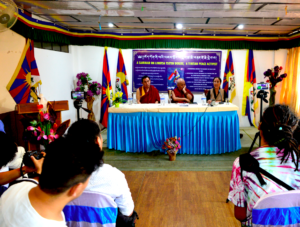
Following Geshe Lobsang Choephel, President of Tibetan Women Association Mrs. Dolma Yangchen spoke on ‘What actions and campaigns needs to be taken by the government, non-governmental organization and the Tibetan people based on the sacrifices by Tibetan peace activist Lingsta Tsetan Dorjee.’ She also offered the full support on behalf of her association on any initiatives concerning the missing Tibetan peace activist Lingtsa Tsetan Dorjee.
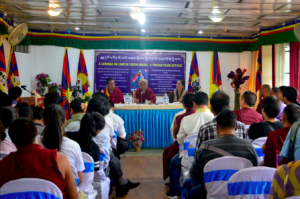
Last to chair the seminar was its Chief Guest Deputy Speaker Acharya Yeshi Phuntsok, who spoke on ‘Activities undertaken by United Nations Human Rights Commission for Tibetan peace activist Lingtsa Tsetan Dorjee, who went missing 5 years ago while campaigning peacefully.’ He began his address by acknowledging the presence of the panelists and other participants and stated that he has no particular greetings to pay as it is a sad and tragic occasion that signifies the 5 years disappearance of Tibetan peace activist Lingsta Tsetan Dorjee’s since he set out for his second peace march on March 10, 2013 from Dharamshala and disappeared somewhere near Kalimpong near the Indo-Tibet border in June 2013. He then shared anecdotes of his meeting with the Tibetan activist at Delhi during his first ‘Dhasa to Lhasa’ peace march in the late 2012 and stated that he is often reminded of the Tibetan activist’s whereabouts and circumstances after the news of his disappearance.
‘He wasn’t an activist who had surge of patriotism only after coming in exile rather he had opposed and fought defiantly even at the very young age of 15-16 years old against the Chinese government’s decree of compelling the Tibetans to pay obeisance to the 11th Panchen Lama installed by the Chinese government as can be read in the history,’ said the Deputy Speaker.
‘As is customary in every society to have its respective participants, organizers and facilitators for any campaigns or activities, Tibetan peace activist Lingtsa Tsetan Dorjee didn’t seek any help from others but rather organized and facilitated his own activities along with his family members,’ he continued.
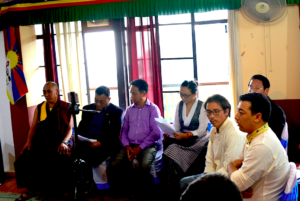
Speaking on the various activities undertaken by many these days, he said that compliance and cooperation with the people and government of any host country is necessary for an activity or a campaign to transpire. ‘We need to request them and reach out to them. At the time, when Tibetan peace activist Lingtsa Tsetan Dorjee began his peace march, he did so in places devoid of Tibetan communities. All the pamphlets were in languages other than Tibetan, even his Five-point demands: (a). Allow H.H. the Dalai Lama to return to Tibet unconditionally, (b) release the young Panchen Choekyi Nyima and other political prisoners unconditionally, (c) Freedom for Tibetans to use their own language, (d) freedom of culture and way of life for Tibetans in their own country, and (e) withdraw all the Chinese soldiers who are currently perpetrating the torture in Tibetan areas, which are meant for the supporters of Tibetan struggle movement. He did everything he could within his capability and most of those were also circulated in media,’ he continued.
He said ‘including the Central Tibetan Administration, various organizations and associations as well as individuals have wrote and approached the United Nation of Human Rights Commission. We need to work harder and more diligently to raise the issue concerning his disappearance as per the three possible outcome (a. Disappearance without trace b. Capture by Chinese government c. Death under torture) as said by himself before setting out for his second Dhasa to Lhasa peace march in 2013. It rests on us to make the United Nation of Human Right Commission hear us. Thus, we need to work together and much more harder.’
‘I hope that you all will continue to carry on this good work until the end in the future, without just stopping here with this seminar. I also wish to add to that necessary assistance, if required, should be rendered to the family members of Lingtsa Tsetan Dorjee as well. I pray that Lingtsa Tsetan Dorjee is well and alive and may his whereabouts be found soon,’ concluded the Deputy Speaker.
The seminar then concluded with a word of thanks by Mr. Chozin, Vice-President cum Secretary of the the Office of the Central executive Committee of Dhomay.
Present at the seminar were members of Tibetan Parliament Mr. Lobsang Yeshi, Mr. Karma Gelek and Mrs. Tsering Lhamo.
